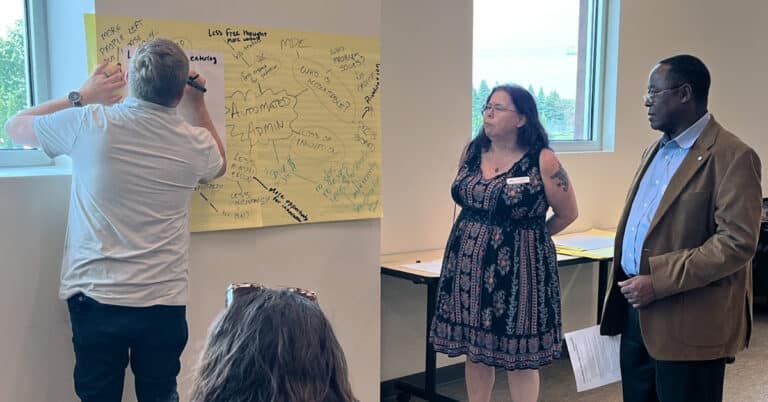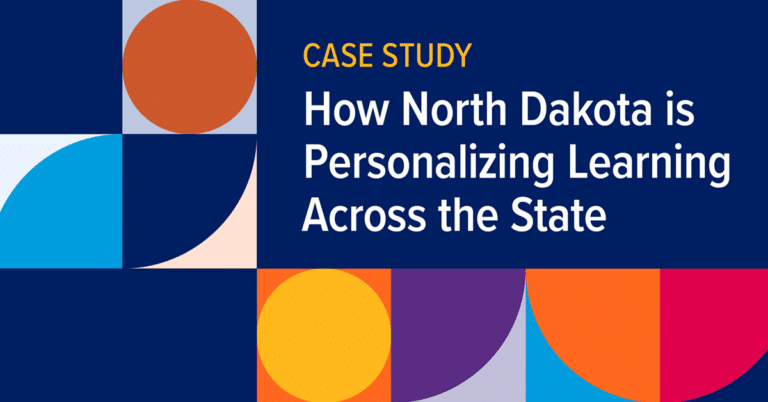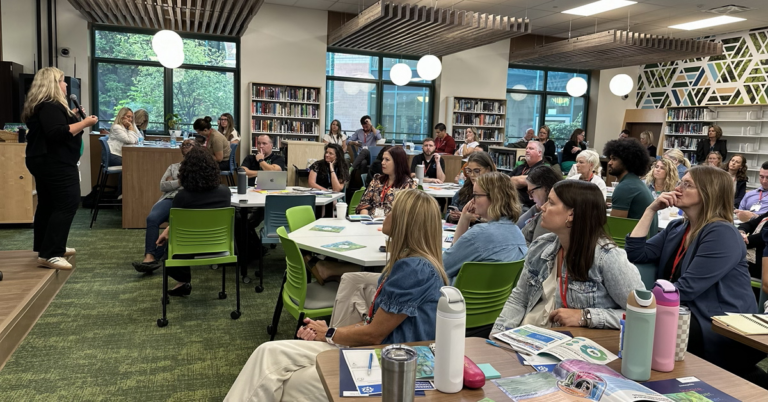Many districts moving toward personalized learning find that parents and guardians are apprehensive about proposed changes – viewing the approach as experimental, untested and unstructured.
And who can blame them? Without clear, transparent communication around how personalized, competency-based learning works, parents and guardians are bound to be nervous about a system that is unfamiliar and diverts from the system that has been operating untouched for centuries.
In talking with district leaders throughout the country, a persistent problem they face is explaining the benefits of this approach to teaching and learning to skeptical parents, guardians and caregivers.
Here are 10 ideas to build public will among parents:
- Attend non-district events in the community. Being involved in non-school related events helps parents to view you and your staff as people beyond school context.
- Plan community focus groups to have conversations and gain insight. Use those insights in communications plans and processes.
- Meet parents where they are. Schedule meetings outside of school where parents feel most comfortable.
- Allow time for parents to visit classrooms to see personalized, competency-based learning in action.
- Conduct a survey to learn about common concerns and consider ways to address those concerns.
- Use common and consistent language to create better understanding. Several terms are used to describe student-centered approaches to teaching and learning and that can be confusing. Once you choose a term, stick with it. Inconsistent language results in confusion and apprehension.
- Host informal chats where parents can come talk directly to administrators and educators to discuss personalized, competency-based learning.
- Invite higher education partners to dispel myths about the transition from a personalized learning environment to postsecondary institutions.
- Use your website and social media platforms to your advantage. These platforms provide opportunities for ongoing and regular communications about personalized, competency-based learning efforts and its benefits.
- Be honest about the role of continuous improvement in the personalized learning implementation process.
While parents and guardians can be a barrier to personalized learning implementation, when given the opportunity to participate and witness the many benefits firsthand, they can also become your best advocates. By intentionally and strategically communicating with parents, schools can focus on building parental buy-in, which is crucial for implementation and sustainability.
When parents embrace personalized, competency-based learning, they become valuable allies, providing encouragement, motivation and a nurturing environment that reinforces the skills and knowledge their child is acquiring. Ultimately, parental buy-in ensures that personalized learning is holistically supported, enhancing student engagement, achievement and overall educational outcomes.






